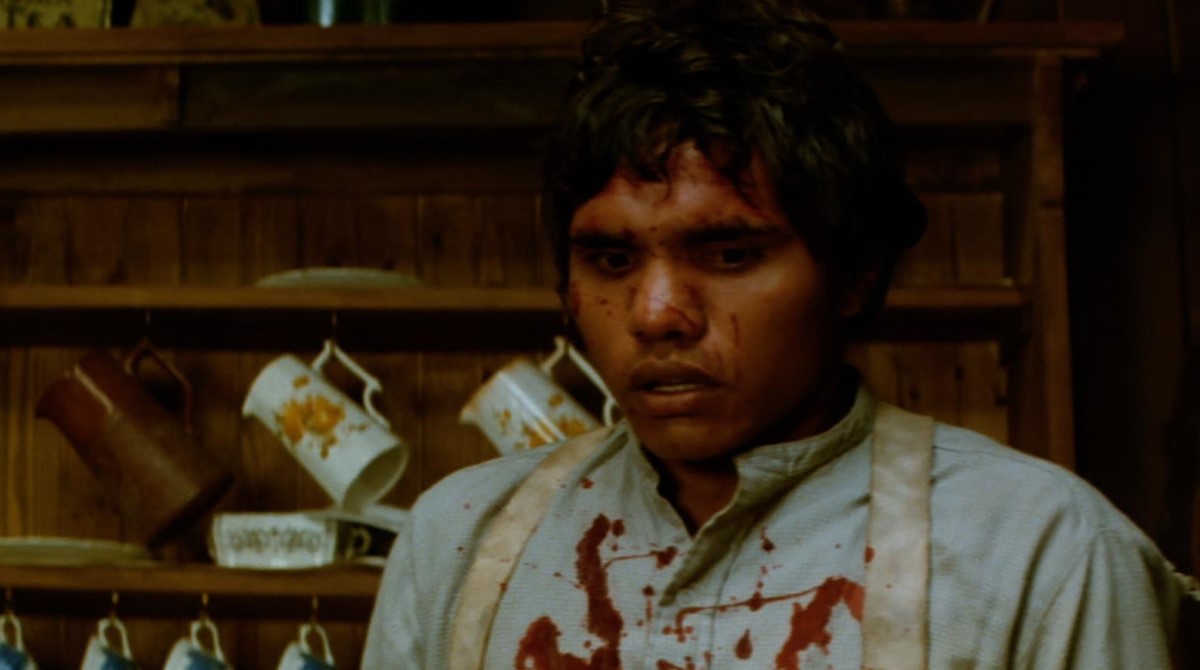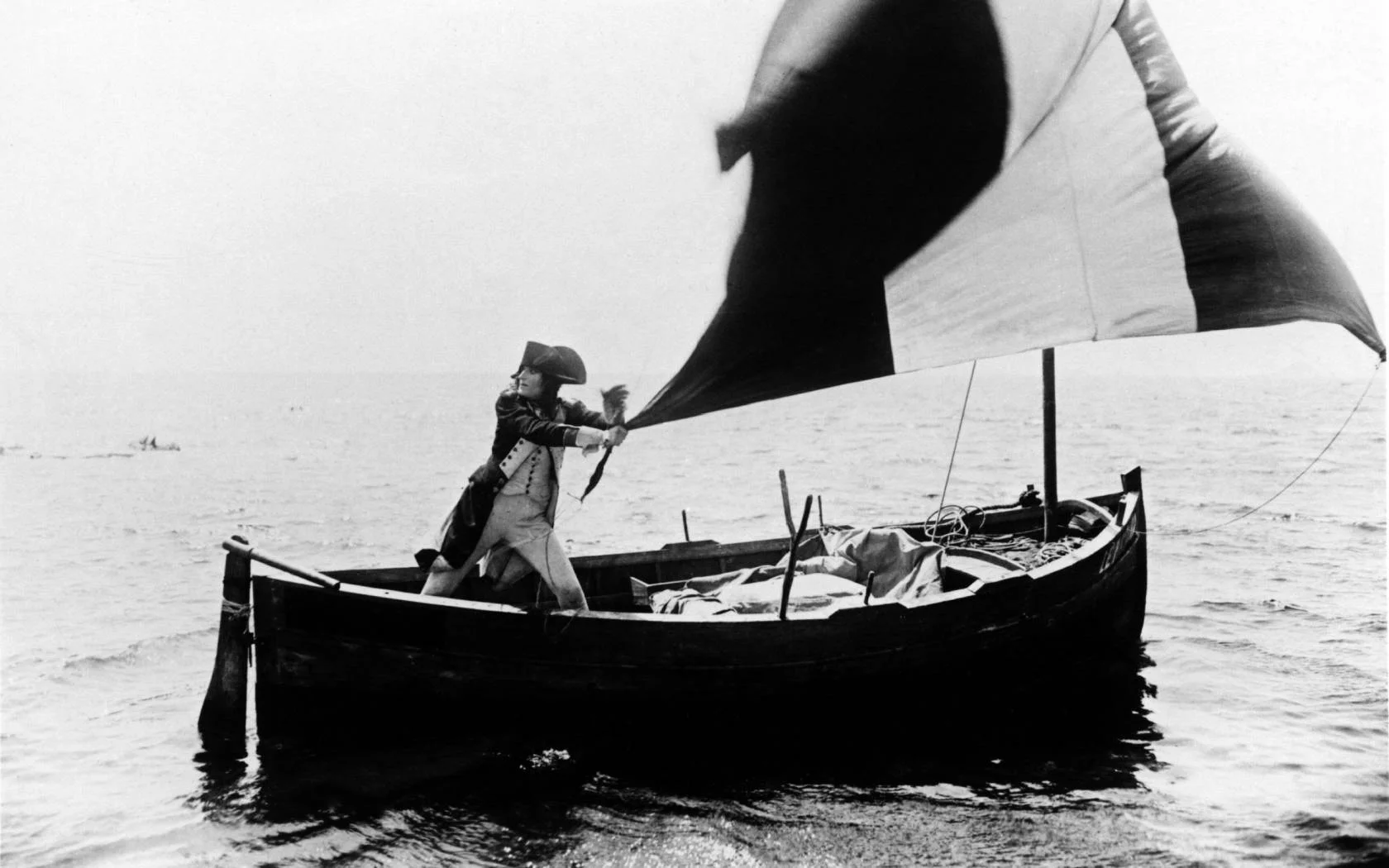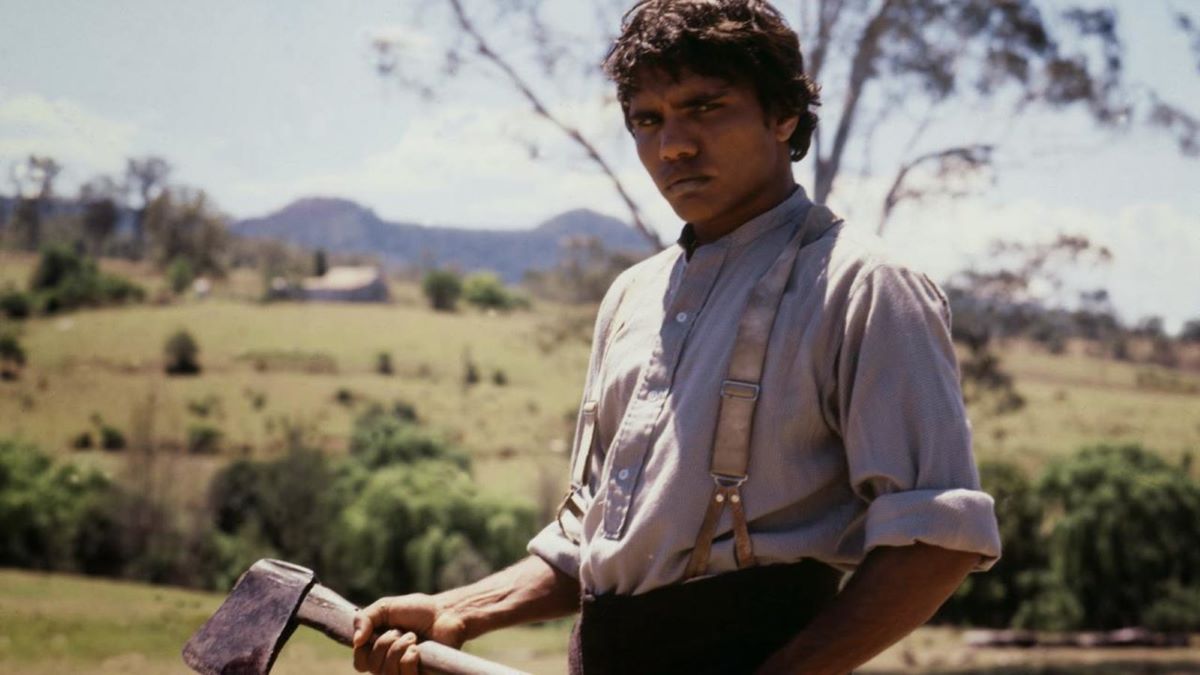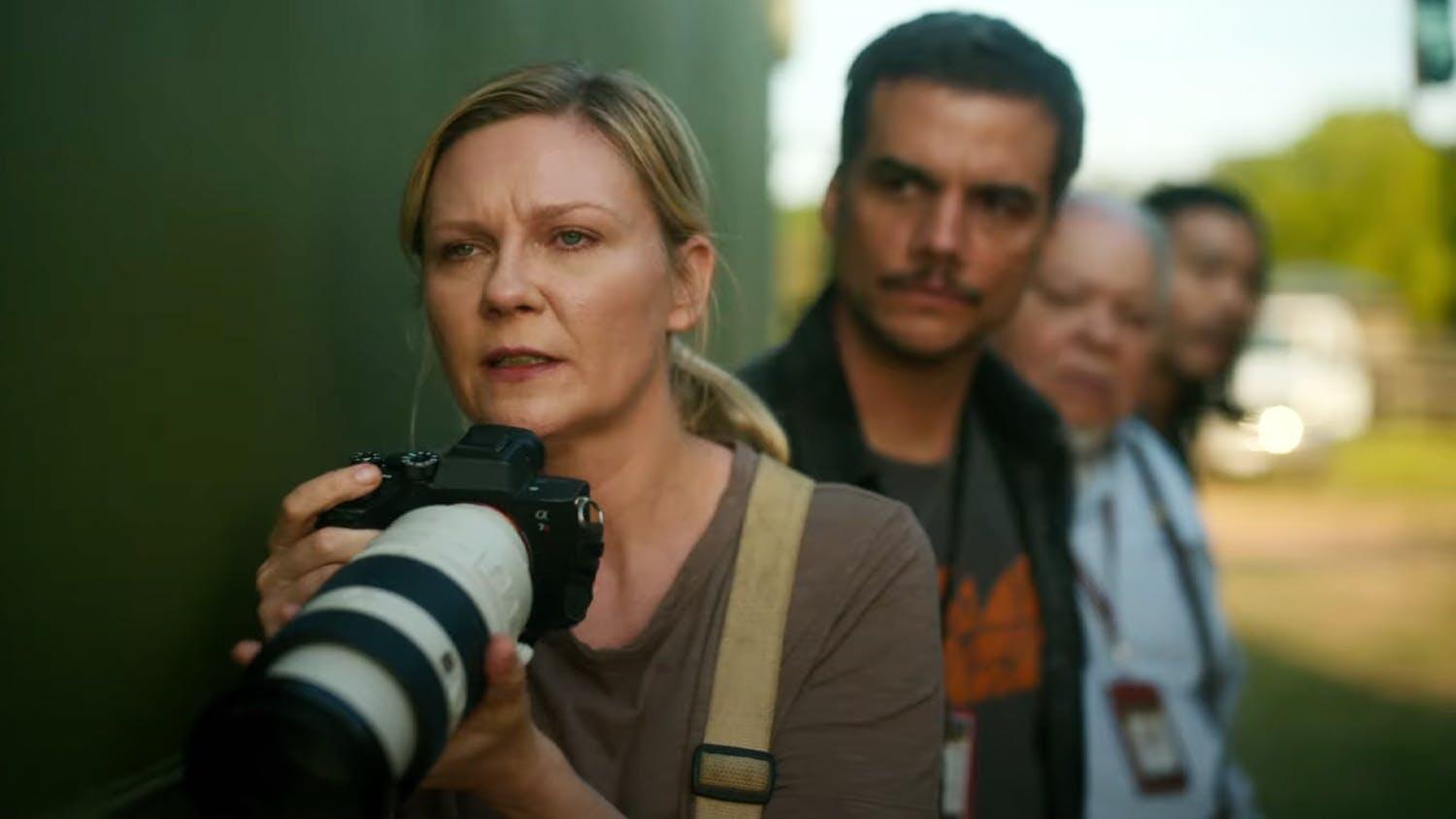by Todd McCarthy
Unquestionably one of the most highly anticipated films of modern times due to its high-powered talent combo, protracted and secrecy-enshrouded shoot, rumored racy content, the 12-year interval since the last Stanley Kubrick picture and the fact that it is being released posthumously, Eyes Wide Shut may have trouble living up to all the extreme and diverse expectations viewers may have for it, as almost any picture would under the circumstances. But after all the curiosity and attendant hype wash away, what one is left with is a riveting, thematically probing, richly atmospheric and just occasionally troublesome work, a deeply inquisitive consideration of the extent of trust and mutual knowledge possible between a man and a woman. Meticulous, deliberate and precise picture casts a particular sort of spell, one that will likely captivate older and thoughtful audiences more than it will mainstream Tom Cruise die-hards and those with short attention spans. A fast commercial start is assured in the wake of the media blitz that basically commenced with Kubrick’s death in March, but measured pace and questionable appeal for under-25s spell hit rather than smash. As usual with the director, Warner Bros. can look to even bigger returns overseas.
Less acerbic and, in its own tentative way, more optimistic about the human condition than any of the director’s previous films, this intimately focused updating by Kubrick and Frederic Raphael of Arthur Schnitzler’s beautifully observed 1926 novella Dream Story remains remarkably faithful to its source while also trading in familiar Kubrick concerns such as paranoia, deception, the literal and figurative masks people wear, and the difficulty for even intelligent human beings to transcend the base and self-destructive impulses that drive the species. Aside from its succession of delectable individual scenes, pic’s outstanding feature is its subtle and unstressed expression of a dreamlike state, a stylistic fusion of the gritty and the fanciful that allows for “reality” and the imaginary to merge to such an extent that it is of no concern which is which, if indeed they are distinct.
Kubrick first considered adapting Schnitzler’s Freudian, Vienna-set tale in the late ’60s, and in its sense of intellectual adventurousness and daring, as well as for its vaguely disembodied, out-of-real-space-and-time feel, pic seems rather more like a part of that era than of today’s cinema. Longtime Kubrick fans will therefore no doubt pick up on many nuances and meanings that could easily elude the masses of contempo viewers who are too young to have seen a Kubrick picture first-run in a theater.
Film bridges its source’s early-20th-century Euro setting with the modern New York locale via a lilting waltz to which the beautiful William and Alice Harford (Cruise and Nicole Kidman) dress in their opulent Central Park West apartment as they prepare for an elegant pre-Christmas party thrown by the extravagantly wealthy Victor Ziegler (Sydney Pollack). The virtuoso 18-minute party sequence, which is bathed in a warm amber glow and instantly rings with stylistic echoes of the bar scene in The Shining, serves to establish the couple’s bond of fidelity in the face of ready opportunities for sexual escapades provided Bill by two flirtatious models, and Alice by a persistently seductive Hungarian (the excellent Sky Dumont).
While the intoxicated Alice barely fends off her charming pursuer, Bill, a medical doctor, is summoned to get Ziegler out of a jam by reviving a nude young woman who has o.d.’d in his private quarters. This is just the first of several instances in the picture of women indulging in mind-altering substances, with direct and sometimes dire consequences.
The very next example serves as the trigger for the film’s main trajectory and also occasions perhaps its most extraordinary scene. Under the influence of marijuana the next evening, Alice initiates a discussion of what happened at the party and becomes angry at Bill’s lack of insight and honesty about sexual impulses. She then goes deeper, confessing to him the convulsive physical effect a handsome naval officer had on her during their Cape Cod vacation that summer. Nothing happened, she says, but she admits that, at the mere sight of the officer, “I could hardly move,” and that at the slightest suggestion from him she would have been willing to give up everything – her husband, their young daughter, her future. This virtual soliloquy reps a dream scene for an actor, and Kidman makes the most of it, reaching a career high-water mark with this remarkable unveiling of a woman’s innermost feelings.
The revelation has a chilling effect on Bill, however, who heads out into the night to respond to a call that one of his patients has died. This marks just the beginning of a long, brooding nocturnal journey that sees Bill, among other things, become the object of a declaration of love by the dead man’s distraught daughter (Marie Richardson), go home with a hooker (Vinessa Shaw) with the evident intention of betraying his wife, and learn of an exclusive costume party from a musician friend (Todd Field) who happens to be playing at the event; every encounter Bill has is cut short by an interruption that’s both frustrating and somehow welcome.
Intent upon an illicit adventure, an excited Bill awakens a costumier (Rade Sherbedgia) in order to acquire the necessary cape and mask for the masquerade, then proceeds out of town to a lavish mansion where he gains entree to an anonymous, rigorously ritualized orgy that eventually places at risk his own life as well as that of a statuesque woman who steps in to save him.
By this time, the film has built up an almost exalted sense of bizarre unreality in which the viewer, like Bill, cannot begin to imagine where this odyssey is leading. But the elaborate orgy set piece representing consummate decadence, which also runs 18 minutes and is set to haunting musical accompaniment devised by composer Jocelyn Pook, represents the picture’s climax and is followed by a protracted stretch of gradually lessening tension, as Bill obsessively tries to determine what happened to the woman who rescued him at the mansion.
While this final hour is far from uncompelling – Alice awakens upon Bill’s return to pour out the lurid details of an intensely sexual dream she’s just had, and Bill revisits the prostitute’s apartment only to receive sobering news – its form is more conventional than what has come before. It’s also saddled with an unnecessary stalking interlude and an overlong dialogue sequence between Bill and Ziegler that is, for Kubrick, uncustomarily direct in the way it explains much of what’s come before. Kubrick trimmed at least two of his pictures (2001 and The Shining) after they opened, and, were he still around to do so, it would not have been surprising for him to cut a bit of this final-act material.
Even though Eyes Wide Shut, like its source story, is seen from the male p.o.v. and largely concerns the obsessions, fears and limitations of its protagonist, pic is unique in the late director’s oeuvre in that it’s the women who far outshine the men. Kidman is sensational and luminous as she inhabits her character, who reps a convincing argument for the view that women are far more cognizant and expressive of their emotions than are men. When absent from the story during her husband’s wanderings, numerous other actresses willingly take up the slack in a succession of brief but indelible turns, most notably the intense Richardson as the bereaved neurotic daughter, the insinuating Shaw as the inviting prostie and Fay Masterson as the latter’s upfront roommate.
Where this leaves Cruise is the film’s most debatable issue. At face value, the star gives a limited, emotionally constrained, eyebrow-crinkling and grimacing performance, nor is he entirely convincing as an established favorite doctor to Gotham’s elite. No doubt the same complaints that were voiced about the ineffectuality of Ryan O’Neal in Barry Lyndon will be heard here about Cruise. On the other hand, it can be argued that the actor, who has none of the big thesping demands placed upon him that the women do, despite being onscreen nearly continuously, generously hands the picture over to his several outstanding female partners by allowing them to shine. While the role could have used an actor whose casual authority cloaked inner turmoil and desire, Kubrick found a way to use Cruise shrewdly, and thesp in no way impedes the picture from the full expression of its intentions and meanings.
Stylistically, the film represents an arresting mixture of imposing stateliness with a sometimes breathtaking intimacy. Kubrick’s trademark tracks and Steadicam shots and magisterial use of music – 22 minutes of it by Pook, the rest resourcefully selected – coexist with deliberately (and beautifully) grainy images, often backed by flared source lights, that sometimes recall the Dogma 95 look of a film such as The Celebration. The opulent decor of Les Tomkins and Roy Walker’s production design is geared to summon up an unconscious impression of the drama’s Middle European source while still reflecting the habitats of Manhattan’s upper class. Street footage reps a combination of large-scale outdoor Greenwich Village sets and effective second unit material.
As for the titillation factor, some of the dialogue is far more explicit than what’s on view. Kidman has much more action with her dream officer in her husband’s mind via black-and-white fantasy footage than she ever does with her mate. Orgy sequence features plenty of stunning nude women striding around as well as pretty standard soft-core simulations.
And so the career of a great filmmaker comes to a close with a work that, while not his most startling or innovative or subversive, nonetheless sees him striking out in exciting and sometimes new directions with his stylistic confidence and boldness intact. Given that the endings to his previous films have been variously absurdist, despairing, apocalyptic, mystical, corrosive, murderous and nihilistic, perhaps the fact that the conclusion here is at least guardedly hopeful suggests that, at the end, Kubrick believed in some sort of human progress after all.
Variety, July 1999





1 thought on “Eyes Wide Shut: Kubrick Casts A Riveting Spell – Review by Todd McCarthy [Variety]”
‘EYES WIDE SHUT’ comes off like a parody of media generated ‘decadence’
You want evil ? – – DEAL with your ‘hospitals’ where 60 million of our unborn have been knifed
– – – and, so it now emerges, and 80% of our FTM —pre-birth flipped- — ‘males’ – – – were created.
KUBRICK was, like ALL directors and A listers, is a SPOOK on a project.
MIS–directing and running the clock was –and remains– a large part of that project.
MAO smiles.